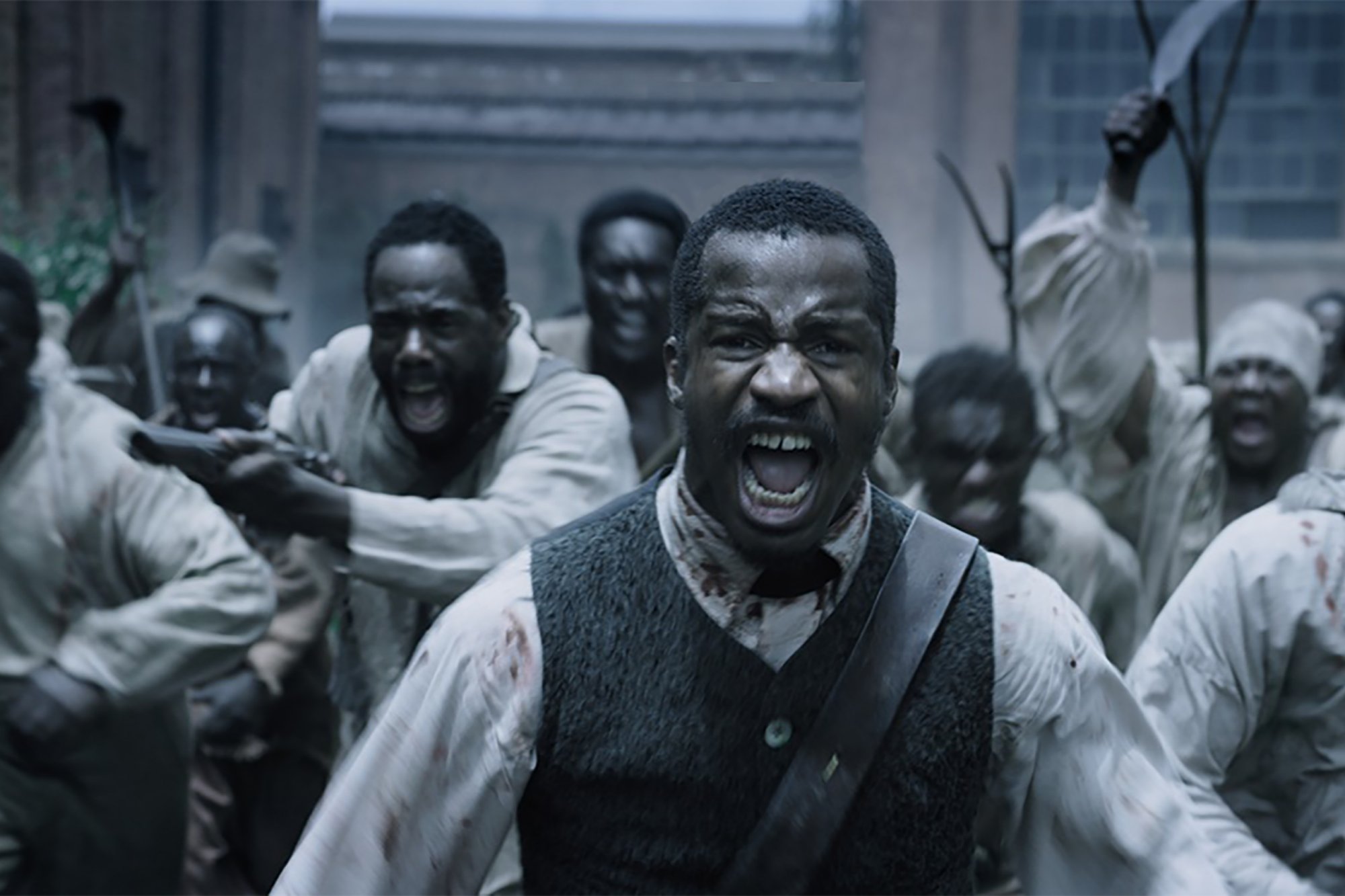The original Birth of a Nation was America’s first film blockbuster; however, it is now best remembered as a film that romanticized the Ku Klux Klan and portrayed African-Americans as monkeys and sub human. So Nate Parker is being pretty ballsy when he names his film The Birth of a Nation. But 2016’s Birth of a Nation rises to the occasion, much like Nat Turner’s slave rebellion in 1831.
When we first meet Nat (played young by Tony Espinosa, as an adult by Nate Parker), he’s witnessing his father (Dwight Henry) get hunted and abandoning young Nat because of trying to provide food for his family. At first, Nat keeps his head down and draws favor from plantation matriarch Elizabeth Turner (Penelope Ann Miller), since Nat and her son Samuel (Armie Hammer as an adult) are friends. Elizabeth teaches Nat to read the Bible, and he becomes a respected preacher amongst the slaves. With economic tensions rising, Samuel takes Nat on a preacher tour to make a few dollars for his family. On this tour, Nat discovers and courts Cherry (Aja Naomi King), his future wife; in addition, Nat uncovers growing inhuman horrors his people encounter. His literacy helps him search the Bible and discover there may be some alternate viewpoints toward the institution of slavery, and he believes the Lord wants him to stand up and be God’s voice on Earth for the downtrodden.
As Steve McQueen showed us, slavery is pretty dehumanizing. The Birth of a Nation is also effective showing increasingly animalistic punishments for the oppressed in the Southern United States. Turner elects to portray a haunting image for us to gasp at. I cannot look at mining tools again, and I nearly threw up when I saw a beaten face of a sweet black woman. However, this is familiar territory for films about slavery. Nate Parker’s spin on movie slavery is to fearlessly put religion front an center for the argument. As most of us know, religion is a powerful tool, and gives people a greater purpose than themselves. However, religion for most people is a projection of their beliefs onto a sacred text. Slave owners wished to exert power, so they stressed scriptures about order in the text; conversely, Nat Turner increasingly wants to rebel, and he starts using religious text to justify HIS point of view. Parker doesn’t come out for or against, but this tug of war debate about religion, its power, and its influence, continues today, giving immediacy to The Birth of a Nation it was otherwise missing. It’s a big risk, but clearly Parker doesn’t care.
I’d seen Nate Parker in other stuff before; he was always solid, and even tried to take down Liam Neeson (spoiler alert: bad decision). However, I was NOT prepared for this type of acting. With his name already all over the behind the scenes activity. Parker puts himself front and center in almost every scene in The Birth of a Nation. Nat Turner’s transformation into a rebel leader is a slow, but believable, burn. Parker modulates his sermons masterfully, becoming more and more rousing as his true beliefs rise to the surface. Parker also delivers the various emotions he feels with effortless charisma; one speech in particular had me in awe of how Parker was conveying one emotion while speaking another. The supporting is mostly good with one real exception (Poor Jackie Earle Haley, you were more evil here than as Freddy Kruger). Armie Hammer and Penelope Ann Miller are solid as relatively decent white people; both are nice caring folk but constricted by something (Hammer alcohol, Miller religious subservience). Aja Naomi King and Gabrielle Union get to play the put upon black female slaves (like Lupita), and they both do fine with the sadness and anger they clearly would have. King is a little better, because there is a power to her that rises at what should be her low points. I was particularly impressed by Esther Scott, who gives Nat’s grandmother a combination of comfort and resilience Nat clearly resonated with (she fuels Nat’s uprising in a way). The impressive black cast also effectively uses the talents of Colman Domingo, Aunjanue Ellis, Dwight Henry, and Roger Guenveur Smith.
Regardless of how you feel about Nate Parker personally, his The Birth of a Nation is an important and impressive piece of film making (his last shot is particularly well executed). The prodigious talent he shows on all sides of the camera displays an assuredness reserved for the greats. Watching something as great as The Birth of a Nation makes me angry that #OscarsSoWhite even exists. Hey, maybe give talented people like Nate Parker more stuff to do next time, duh!

